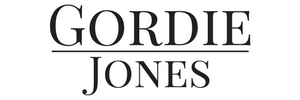Destiny pivots on a pinhead. The tiniest of things – actions and reactions, decisions and moments of indecision – gather together like the flapping of so many butterflies’ wings to build a hurricane, pushing one this way or that.
That’s true of great civilizations, and true in the artificial world of sports.
It is also central to Jack McCallum’s terrific new book, Golden Days (Ballantine, $28), which examines the forces that shaped the present-day Golden State Warriors and the 1971-72 Los Angeles Lakers, a team that crafted an NBA-record 33-game winning streak en route to a championship of its own.
The thread connecting the two is Jerry West, a Hall of Fame player on that Lakers club and until a few months ago a Warriors consultant. The 79-year-old West, previously the general manager of the Lakers and Memphis Grizzlies, has in fact become as revered for his personnel acumen as he was his play on the court. No small feat, that.
For good measure he’s The Logo, the silhouette of his dribbling likeness having been chosen nearly 50 years ago to serve as the league’s signature image.
McCallum, who for years covered the NBA for Sports Illustrated (and has written well-received books about the Mike D’Antoni/Steve Nash Suns, as well as the original Dream Team), deftly dissects these two points on West’s personal timeline, laying bare for the reader everything that delivered those Lakers and these Warriors to their ultimate destinies.
It is unlikely, for instance, that the ’71-72 Lakers would have achieved all they did had not Elgin Baylor, a past-his-prime great, announced his retirement nine games into that season – because, McCallum writes, it appears he was being phased out by new coach Bill Sharman in favor of a young, swift forward named Jim McMillian. The Lakers began their long winning streak the very night Baylor hung ‘em up, and would go on to beat the Knicks in the Finals.
And certainly that team would not have achieved greatness if Wilt Chamberlain hadn’t bought in to Sharman’s system. Wilt was big on individual numbers – you will recall, of course, that that extended beyond the court as well – but that season he was content to serve as rim protector, rebounder and triggerman of a relentless fast break (at least until the Finals, when he was needed to score once more).
(The asides on Wilt are great, too. Baylor nicknamed him “Big Musty” because Wilt would neither shower much nor ever clean out a gym bag filled with unwashed clothing and half-eaten food.)
As for the current Warriors, imagine what might have been. Imagine if Stephen Curry had wound up a New York Knick, which according to McCallum was his dream destination coming out of Davidson in 2009. Imagine if the Warriors had parted company with Curry instead of another smallish guard, Monta Ellis, three years later, knowing the two of them could not coexist in the same backcourt.
Imagine if Steve Kerr had elected to coach the Knicks instead of Golden State in 2014 (and he considered it, McCallum writes). Imagine if the Warriors had traded Klay Thompson to Minnesota for Kevin Love that same year.
If any one of those things occurs, the Dubs are not the Dubs – winners of two of the last three championships, and odds-on favorites to capture another this season.
As it was, former general manager Larry Riley insisted on taking Curry at No. 7 overall in ‘09, even though he refused to work out for Golden State before the draft. West arrived as a consultant two years later, and was among those in favor of parting company with Ellis (despite the fact that he was more popular in the Bay Area at the time than Curry), and opposed to the Thompson-Love trade.
And while West did not have a huge role in the Warriors’ wooing of free agent Kevin Durant in the summer of ‘16, McCallum writes it is true that he placed a phone call to Durant the day after owner Joe Lacob, general manager Bob Myers, Curry, Thompson, Draymond Green and Andre Iguodala gave him their recruiting pitch in a meeting in the Hamptons. West’s call, Durant tells McCallum, was “part of the package.”
The package is complete now. The hurricane-force winds threaten to flatten the rest of the league yet again.
Should the Warriors go on to win another title, it will be without West, who departed the team after last season to assume a similar position with the Los Angeles Clippers. According to McCallum, the Dubs wanted West to take a 50-percent pay cut, from an estimated $2 million a year to $1 million annually.
Rest assured that the Logo isn’t hurting for cash. This was more a matter of pride, more a matter of respect.
It might also turn out to be is the first slackening of the wind in the Warriors’ sails, the first sign that their destiny is about to change. Such small things tend to add up after a while.
